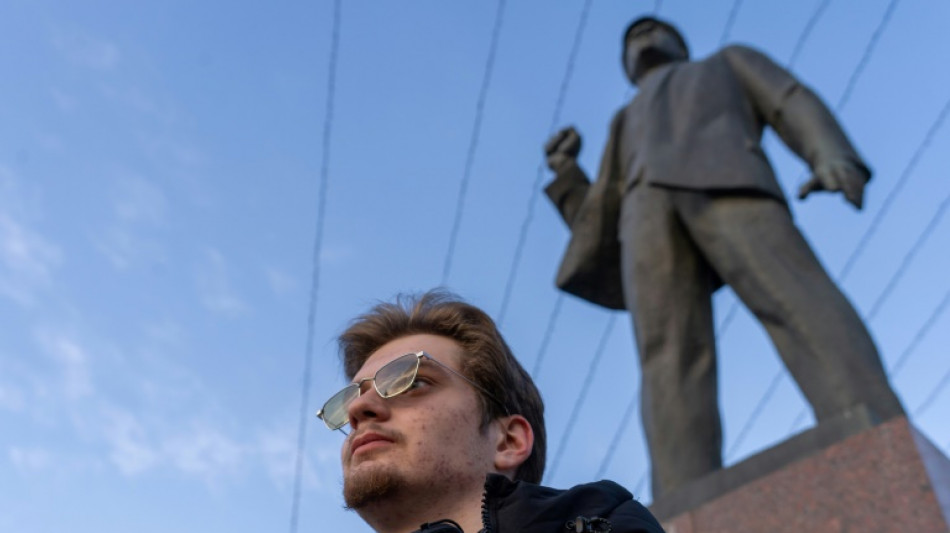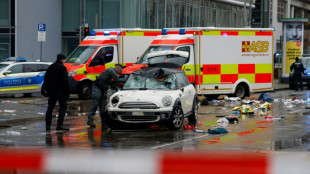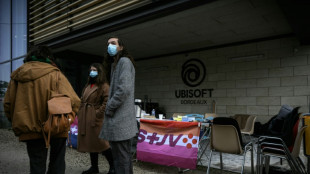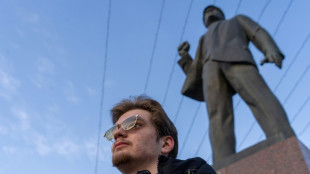

Navalny's legacy dims among young Russians he once galvanised
For the young Russians who would once have turned out to Alexei Navalny street rallies in their thousands, the opposition leader's public legacy has faded fast in the year since his death.
The Kremlin critic had hoped young, urban, pro-Western Russians would help him remove President Vladimir Putin from power.
But on the streets of Moscow, his name now instils only indifference. Or fear.
"Young people are afraid to talk about this person," Victoria, a 24-year-old ceramist, told AFP.
She said she and her friends did discuss Navalny -- who died in an Arctic prison colony on February 16, 2024, in murky circumstances -- but only in private.
Russian authorities sentenced Navalny to 19 years on "extremism" charges largely seen as retribution for his opposition to Putin, imprisoning him in harsh prison colonies where he was regularly kept in solitary confinement.
And as Moscow has outlawed all forms of public dissent amid the Ukraine offensive, it has escalated a crackdown on Navalny's organisation, allies, associates and family members even after his death.
Three of his lawyers have been sentenced to years in jail, journalists who covered his court hearings have been arrested and his wife Yulia Navalnaya was added to a blacklist of "terrorists and extremists".
Anybody who mentions Navalny or his Anti-Corruption Foundation without mentioning that they have been declared "extremists" is subject to fines or up to four years in prison for repeated offences.
In such a climate, young Russians are hesitant to talk openly.
"Today we have three taboo subjects -- politics, religion and sex," said 19-year-old student Anastasia, who declined to give her family name.
- 'Person who tried' -
"No-one wants any problems. Young people are now quite apolitical and try not to touch these issues in any way," added Victoria.
Fyodor, a 22-year-old student, is another who said he and his friends only dared to "remember" Navalny in private.
"Even if the collective memory represses it, for me he is still the person who tried," he said.
But for many others, Navalny's name is met with little more than indifference.
Although acknowledging the Kremlin critic was "famous", 21-year-old acting student Maxim said: "He had his own political views and then he was gone. I didn't follow him."
"My peers don't care what's going on. They have their own things," he said.
"I have not heard who he is, where he is, what he does. I only know his name," said engineering student Anastasia Solovieva.
She has just turned 18 and has the right to vote in the presidential elections that Navalny was always barred from contesting.
"Who will I vote for? Like my parents, I like stability," she said.
- 'Apolitical' -
Having known no other leader than Putin, Russia's 20-somethings are marked by their apoliticism, said Denis Volkov, director of the Levada Center, an independent polling outfit.
When asked just after Navalny's death if they approved of his activities, 37 percent of 18- to 24-year-olds said they knew nothing about him or his work.
Yet at the same time, young people made up the bulk of Navalny's followers, backing him because he "was telling the truth and not afraid to go against Putin", Volkov told AFP, citing polling data.
And it was young people who helped him secure 27 percent of the vote in the 2013 Moscow mayoral contest -- an election he denounced as unfair and falsified but which spooked the Kremlin enough to block him from ever getting on the ballot again.
"Everything changed with the start of the military actions in Ukraine," said Volkov, who has been declared a foreign agent.
"The noticeable share of those who were opposed to Putin, who criticised him, has gone."
Amid his Ukraine offensive, Putin has further tightened his grip on power while the opposition, leaderless and plagued by infighting, is struggling for relevance.
"After the hostilities have concluded, and if there is detente with the West, then the demand for opposition politicians will return," Volkov said.
For now though, many young Russians express little interest in that question.
"I'm far away from politics," said Pavel, a 19-year-old engineering student. "I don't discuss it because it does not concern me."
R.Cornelis--JdB



